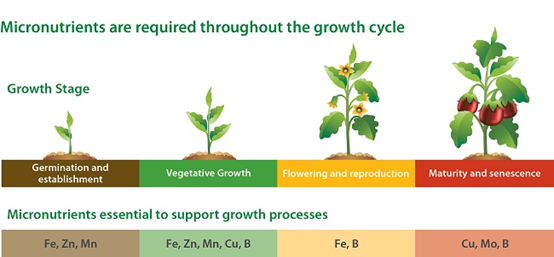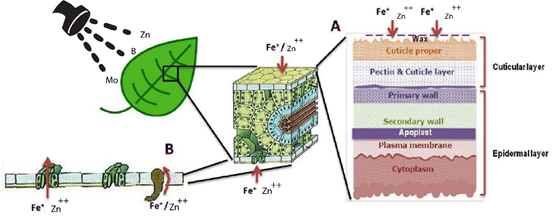
Exhibition time: 17-19 March, 2026 Shanghai, China
 中文
中文

Exhibition time: 17-19 March, 2026 Shanghai, China
 中文
中文

Foliar fertilization of crops offers specific advantages over soil-applied fertilizers because the nutrients applied are taken-up directly by their target organs like leaf, stem, flower, and fruit. Moreover, soil nutrients are not always completely available. This is due to leaching, soil fixations, blockages, and other losses. With foliar fertilization, we can avoid these factors. Foliar Fertilizer shows unique characters that do not exist in their conventional counterparts.

Micronutrient foliar fertilizer plays a key role in increasing crop productivity. Plants need micronutrients in small quantities and these elements play a vital role in plant development. The importance of the micronutrients comes from its effect of stimulating the process of photosynthesis which results in higher yield and quality. During the growth period, plants require instant nutritional support for optimum flowering and fruiting. Foliar Fertilizers can promptly mitigate the nutritional gap at the vegetative and reproductive stage. On the other hand, indiscriminate use of conventional fertilizer may result in deterioration of soil health, crop quality, and yield.
Despite all agronomic practices, plants cannot respond properly sometimes because of the deficiency of micronutrients. Micronutrient stimulates the physiological process, develops the immune system, and creates resistance of the plant. Also, availability of micronutrient in plant alleviates micronutrient malnutrition which may cause growth retardation, hemophilia, osteoporosis, and anemia of human body.
A 2018 study conducted by researchers from Patuakhali Science and Technology University showed that the application of foliar fertilizer in Boro Rice (Oryza sativa L.) increased 20.3% yield than the control. Another concurrent evaluation by researchers from Bangladesh Agricultural University and Sylhet Agricultural University revealed that the application of Zinc fertilizer in Potato (Solanum tuberosum L.) increased 20.4% yield than the control. These findings are in line with a previous study of Bangladesh Agricultural Research Institute (BARI) in 2016 which reported that the combined foliar application of Zinc and Boron fertilizer resulted in 18.3% more yield of Tomato (Lycopersicon esculentum Mill).

Image: Mode of Foliar Fertilizer Application | Source: ACI Agribusiness,By: Dr. F H Ansarey
